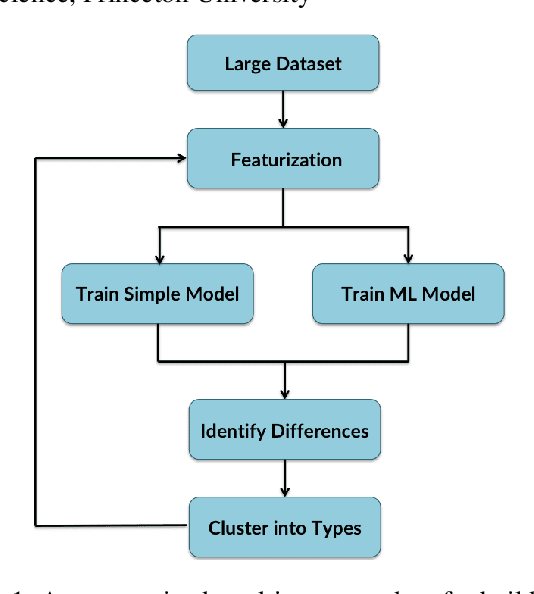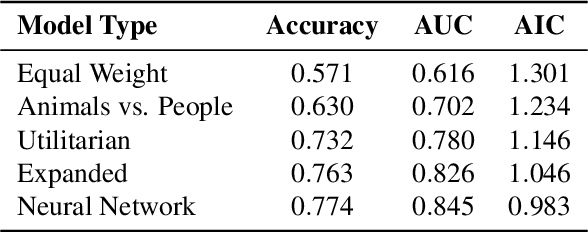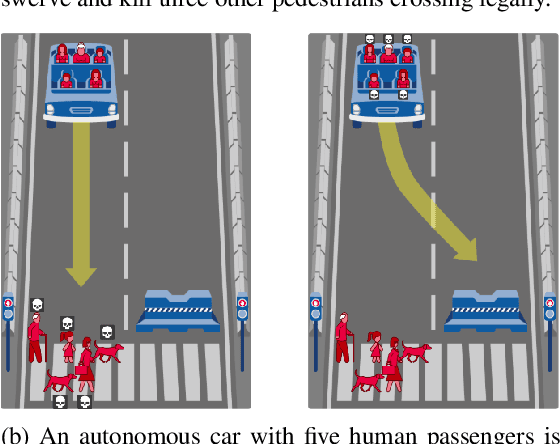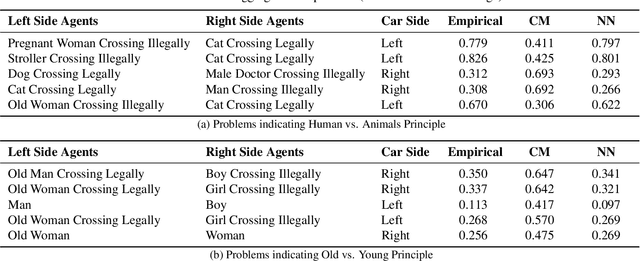Using Machine Learning to Guide Cognitive Modeling: A Case Study in Moral Reasoning
Paper and Code
Feb 25, 2019



Large-scale behavioral datasets enable researchers to use complex machine learning algorithms to better predict human behavior, yet this increased predictive power does not always lead to a better understanding of the behavior in question. In this paper, we outline a data-driven, iterative procedure that allows cognitive scientists to use machine learning to generate models that are both interpretable and accurate. We demonstrate this method in the domain of moral decision-making, where standard experimental approaches often identify relevant principles that influence human judgments, but fail to generalize these findings to "real world" situations that place these principles in conflict. The recently released Moral Machine dataset allows us to build a powerful model that can predict the outcomes of these conflicts while remaining simple enough to explain the basis behind human decisions.
 Add to Chrome
Add to Chrome Add to Firefox
Add to Firefox Add to Edge
Add to Edge